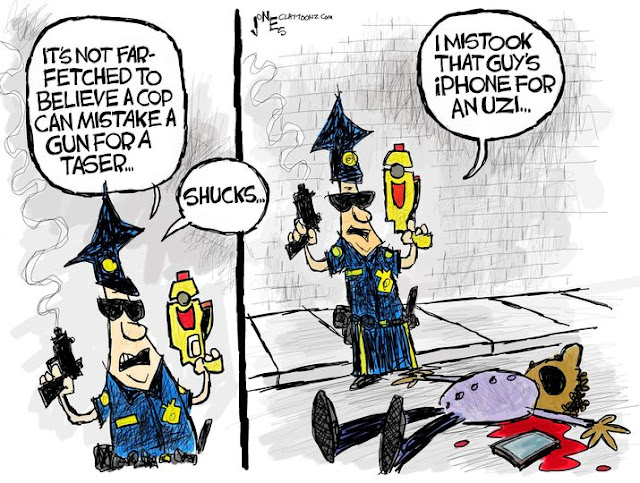Enforcers category archive
A Question of Identity 0
Dominic J. Packer and Jay Van Bavel explore why bystanders just stand by and onlookers just look on.
If One Standard Is Good, Two Must Be Better 0
At NJ.com, Albert Kelly compares and contrasts.
Immunity Impunity
0
 The card that enforcers always use to trump their way out of being held responsible for their venality.
The card that enforcers always use to trump their way out of being held responsible for their venality.
Immunity Impunity
0
 I’m almost–not quite–as old as the man who filed this suit.
I’m almost–not quite–as old as the man who filed this suit.
I don’t think police would have treated me as they did the plaintiff in said action, but, then, I’m Not Black.
Immunity Impunity
0
Julie Werner-Simona, a veteran of three decades as a Federal prosecutor who’s now a law professor, argues that it comes from the top.









